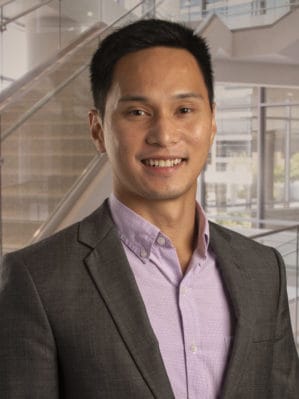Assistant Professor

Research Interest: Functional genomics to study host-pathogen interactions and biological processes
Ph.D.: Georgetown University, Washington, D.C.
Postdoctoral: Northwestern University, Chicago, IL
Office: 501-214-2074
Fax: 501-686-5359
Email: mmanzano@uams.edu
Currently accepting new students (Ph.D., M.D./Ph.D., M.D., M.S.)
Research Description
My lab uses functional genomics to study host-pathogen interactions and biological processes. Functional genomics (using CRISPR screens) allows for the simultaneous interrogation of the contribution of each gene in the human genome to a particular phenotype. This bridges genotype to phenotype on a genome-wide scale in one experiment.
We are interested in studying primary effusion lymphoma (PEL), an aggressive B cell cancer caused by the Kaposi’s sarcoma-associated herpesvirus or human herpesvirus 8 (KSHV/HHV8). PEL tumor cells rely on the constitutive expression of virally encoded genes that globally reprogram host gene expression to create a conducive environment optimal for tumor cell proliferation and survival. We previously performed genome-wide CRISPR/Cas9 screens and identified 210 host genes that are required for tumor cell proliferation and survival. Our over-all goal is to understand the functions of these host genes in B cell lymphoma. Using CRISPR/Cas9, CRISPRi and CRISPRa-based synthetic lethality and rescue screens, we aim to identify functional genetic interactions of these host genes. We anticipate that this unbiased approach will uncover novel and underappreciated insights into the biology of these host genes. We will furthermore leverage these host genetic dependencies by testing the efficacy of small molecule inhibitors against PEL in vitro and in vivo. Lastly, we are developing a CRISPR-Cas13 system to screen for coding and non-coding transcripts from KSHV that are essential for tumor cell proliferation and survival. Together, our research program will provide a better understanding of the oncogenic processes driven by the tumor virus KSHV, uncover new biology of host genes, and develop new therapeutics for this aggressive malignancy.
Relevant Publications
Full bibliography at Google Scholar
- Viswanathan P, Bersonda JR, Gill J, Navarro A, Farrar AC, Dunham D, Boehme KW, Manzano M (Corresponding Author). The Mitochondrial Ubiquitin Ligase MARCHF5 Cooperates with MCL1 to Inhibit Apoptosis in KSHV-Transformed Primary Effusion Lymphoma Cell Lines. bioRxiv.
- Murdock SJ, Bersonda JR, Forrest JC, and Manzano M (Corresponding Author). Molecular Mechanisms of KSHV Latency Establishment and Maintenance. Current Clinical Microbiology Reports, in press.
- Dunham D*, Viswanathan P*, Gill J, Manzano M (Corresponding Author). Expression ratios of the antiapoptotic BCL2 family members dictate the selective addiction of Kaposi’s sarcoma-associated herpesvirus-transformed primary effusion lymphoma cell lines to MCL1. Journal of Virology. 96(23):e0136022, 2022. *Equal contributions.
- Kuehnle N, Osborne SM, Liang Z, Manzano M, and Gottwein E. CRISPR screens identify novel regulators of cFLIP dependency and ligand-independent TRAIL-R1-mediated cell death. Cell Death and Differentiation, doi.org/10.1038/s41418-023-01133-0. 2023.
- Manzano M*, Gunther T*, Ju H, Nicholas J, Bartom ET, Grundhoff A, Gottwein E. KSHV drives a super-enhancer-mediated survival gene expression program in primary effusion lymphoma. mBio 11(4):e01457-20. 2020. *Equal contributions.
- Manzano M, Patil A, Waldrop A, Dave S, Behdad A, and Gottwein E. Gene essentiality landscape and druggable oncogenic dependencies in herpesviral primary effusion lymphoma. Nature Communications, 9(1):3263, 2018.
